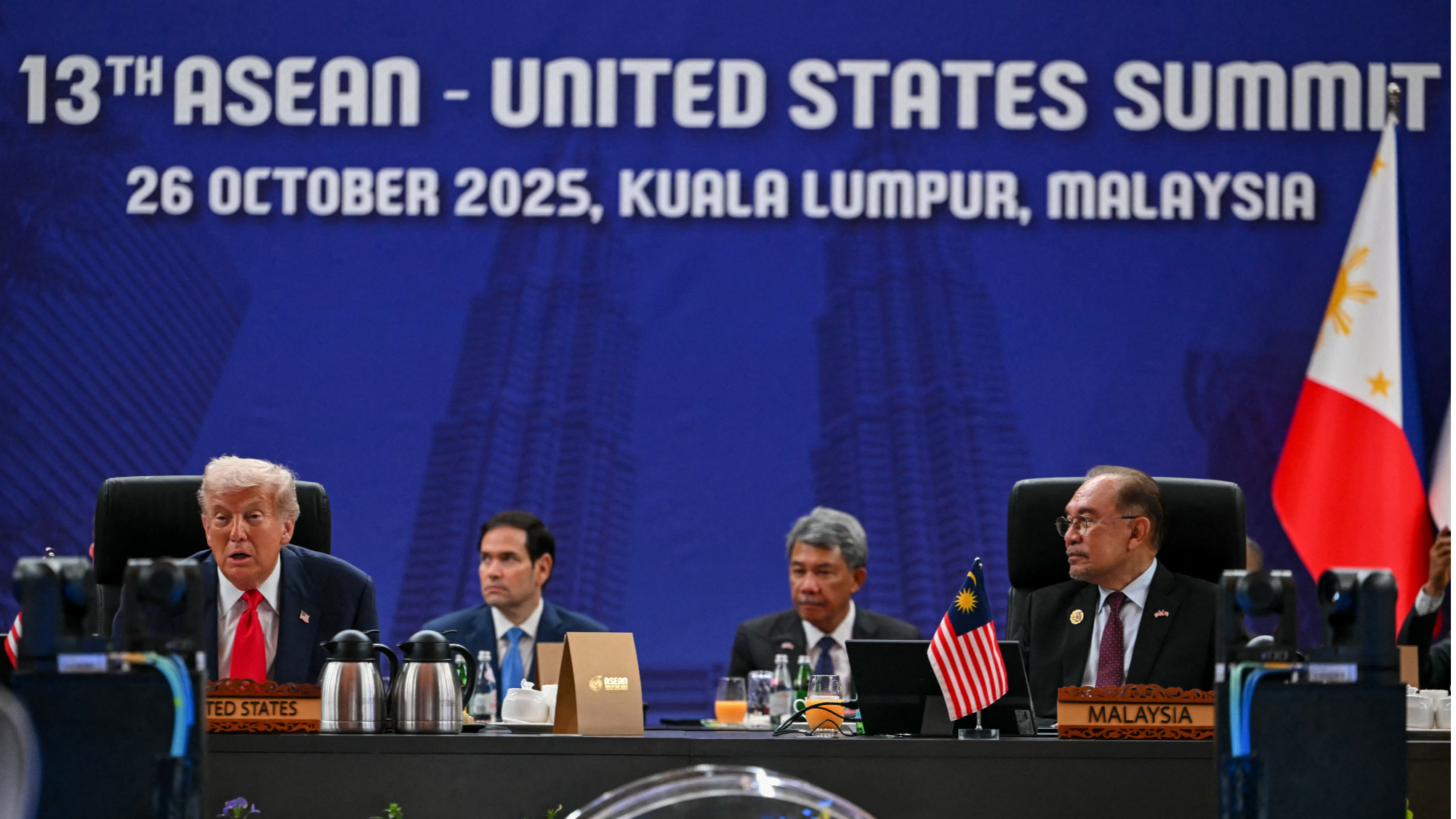
The trade deals signed by four Southeast Asian nations with the United States (US) in Malaysia on the sideline of ASEAN Summit are seen as offering concessions that unfairly favor the US and likely to weigh on the regional economic outlook, analysts said.
The 47th Association of Southeast Asian Nations Summit (ASEAN Summit) was held in Malaysia’s capital Kuala Lumpur from Oct 26 to 28. Visiting US President Donald Trump signed trade deals with leaders of Cambodia, Malaysia, Thailand, and Vietnam.
Among others, Cambodia and Thailand pledged to allow the duty-free imports of US goods. Malaysia, Thailand, and Vietnam agreed to buy US farm goods, vehicles, and aircraft. Thailand and Malaysia also signed an agreement on the critical minerals supply chain. The United States said it will maintain 19 or 20 percent tariff rates imposed in August on products of these countries.
READ MORE: ASEAN urged to unitedly seek solutions
Julia Roknifard, a senior lecturer at the School of Law and Governance at Taylor's University in Malaysia, said these deals are “a concession for ASEAN”.
“It looks pretty humiliating that (these ASEAN countries) had to give these concessions and committed to purchase from the US things that they don't actually need,” Roknifard said.
Wan Suhaimie Wan Mohd Saidie, head of economic research at the Kuala Lumpur-based Kenanga Investment Bank, said, while the US gained supply-chain security and diplomatic deals, “ASEAN got short-term visibility but little structural leverage.”
Moreover, “this is a reminder that without stronger unity, the region risks being a venue for great-power strategy rather than a driver of it,” Wan Suhaimie said.
Meanwhile, ASEAN and China deepened their partnership by signing an upgraded ASEAN-China Free Trade Area 3.0 (ACFTA), expanding cooperation in the digital and green economies, supply chain resilience, consumer protection, and entrepreneurship.
Mustafa Izzuddin, a senior international affairs analyst at Solaris Strategies Singapore, said the upgraded ACFTA signals the continued importance of economic interdependence between China and ASEAN, which is more crucial now in light of the higher US tariffs.
Roknifard, of Taylor’s University, said the upgrade means the steady growth of ties between China and ASEAN.
“And that's something that we look forward to, not the fleeting nature of the American presidency,” she said.
Analysts noted that the trade deals signed with both the US and China also show how ASEAN prefers to be neutral, balancing relations with two of the world’s major powers.
Yeah Kim Leng, a professor of economics at Sunway University in Malaysia, said ASEAN is benefiting from its good bilateral relations with both China and the US, citing increased trade and investment with both countries.
“ASEAN’s key role is not only facilitative but also an enabler, thereby reinforcing its relevance as a bridge for superpowers to negotiate and compromise,” Yeah said.
READ MORE: ASEAN vows further regional integration
For Wan Suhaimie of Kenanga Investment Bank, hosting the Sino-US talks in Malaysia over the weekend underscored ASEAN’s growing role as the “strategic middle ground in a fragmenting global order”.
Peter TC Chang, a research associate at the Malaysia-China Friendship Association, said that this year’s summit reaffirms ASEAN’s commitment to multilateralism, neutrality, and ASEAN centrality.
“We maintain our open policy of engagement with all, and the diverse representation of global leaders in the summit is a testament to that open policy,” Chang said.
Contact the writer at prime@chinadailyapac.com



